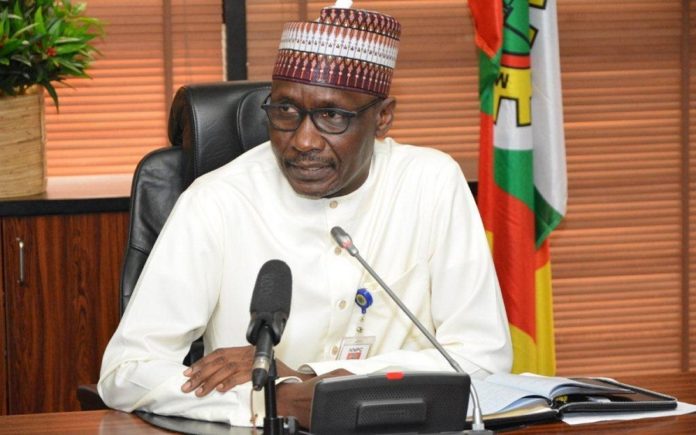Group Managing Director of Nigeria National Petroleum Corporation, (NNPC) Mele Kyari, says the corporation is suffocating under a heavy burden to keep the pump price of Premium Motor Spirit, also known as petrol, at current level.
He said on Thursday at a weekly media briefing organised by the Presidential Communication Team at the State House, Abuja, that it has become inevitable for the NNPC to shed the burden as it can no longer bear the over N120 billion monthly subsidy for PMS.
Kyari noted that the actual cost of importation and handling charges per litre of essential petroleum product amounts to N234, while the government is sells at N162 per litre with the NNPC absorbing the cost differential.
“Our current consumption (evacuation) from our depots is about 60million litres per day. We are selling at N162 a litre. Current market price is 234, actual market price today. The difference between the two, multiply by 60million, times thirty, will give you per month.
This is a simple calculation you do. If you want exact figures from our book, I do not have it from this moment but it’s between N100billion and N120billion per month. We are putting the difference in the books of NNPC and we cannot continue to bear”.
Kyari said Nigerian would sooner or later have to pay the actual cost for PMS with the inability of the NNPC to continue bearing the monthly cost of between N100 billion and N120 billion to sustain the pump price at the current levels, adding that market forces must be allowed to determine the pump price of petrol in the country.
In his remarks, Minister of State for Petroleum Resources, Timipre Sylva, expressed the hope that the Petroleum Industry Bill (PIB) would be passed into law in April, noting that frantic efforts are being made by the legislators to complete work on the bill and pass it, in line with the aspirations of critical stakeholders in the petroleum sector.
“The National Assembly has expressed the intent to pass the PIB into law by April 2021, every effort is being made to support the National Assembly to meet this target,” he said, while enumerating the gains of the PIB to Nigerians, the minister said it would create additional infrastructure across petroleum value chain.
“Greater confidence would be engendered with certainty in the petroleum industry, which will lead to increased investments. Nigeria will occupy its place among commits of nations who have updated their petroleum industry laws in line with current realities.
“The bill will also enable a structured monetization of fossil fuel resources before the whole world turns to renewable. It will also impact positively on the Nigerian economy with multiplier effect on the petroleum sector,’’ Sylva said, just as he also expressed the hope that the bill when passed, would lead to an increase in the use of gas for domestic purposes.

